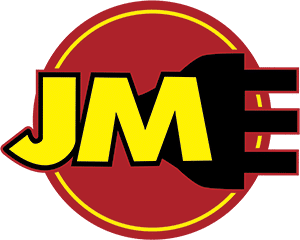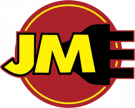Frequently Asked Questions
Learn More About Our Services
Browse through our frequently asked questions below to learn more about what John McEwan Electrical has to offer. Our skilled electricians service residential, commercial and industrial clients throughout Shellharbour, Kiama, Dapto, Thirroul, Wollongong, Bowral, Mittagong and Moss Vale.
How can I tell if my wiring needs to be updated?
If you live in an older home or are thinking about buying an older building, the first step is to have the wiring inspected by a professional. You may need your panel upgraded so it can handle modern appliances and electronics. Older wiring can also sometimes become a fire hazard, so all vulnerable areas should also be thoroughly inspected.
Why is my power out?
There are a number of reasons why your power may have stopped working. The first step is to check your switchboard to determine if you may have flipped the breaker. If that isn’t the cause, check with your energy company to find out if there is a widespread outage. If there is, then the cause of trouble has occurred outside of your home. If that isn’t the cause, then you should call a professional to inspect your wiring.
Does wiring require routine inspections?
While many people don’t realise it, it is a good idea to have your wiring regularly inspected for problems. Although it contains no moving parts, your electrical system can wear out over time. Additionally, rodents and other pests can occasionally cause damage to wires, leading to issues. Having a yearly inspection will help ensure your wiring stays in top working order.
Can you change my single sockets to double sockets?
Yes, our electricians can change your single socket to a double, ensuring all cables are safely connected to your mains. This is a great way to increase the available plug space in your home or business without installing a brand new socket.
Can I carry out my own electrical work?
Across Australia, it is illegal to carry out most electrical work yourself. To avoid damage, injury or incurring a hefty fine, it is best to employ the services of a licensed electrician.
For those avid DIYers, remember to double-check any electrical work you carry out is in fact legal. Whilst it is always best to hire an experienced electrician, you can complete the following jobs yourself:
- Install low-voltage lighting
- Change light bulbs
- Install pond pump
- Install battery-operated smoke alarms
- Replace the drive belt in a washing machine
What should I do in a blackout?
If all of your power goes off, the first thing to do is try to identify whether it is just your property or the entire area that is affected. If your neighbours have also lost power, it is likely an issue with the grid – visit Ausgrid for updates and further information.
If your property is the only one affected, locate your fusebox and check whether your circuit breaker has tripped. If turning it off and on again doesn’t restore power, it is time to call the licensed electricians at John McEwan Electrical.
What should I do if my electricity keeps tripping?
This could be due to a number of reasons and is often a sign that your circuit is being overloaded. This may be a result of a faulty appliance, so take note as to whether your electricity trips when you plug in or use a particular device. If this is not the cause, there may be a fault somewhere in your property’s wiring that will need to be addressed by a licensed electrician.
Should I change my light bulbs to LED?
As experts in the field, we highly recommend changing over to LED lightbulbs. Not only are LEDs better for the environment, but they can save you money too. It is estimated that switching to LED bulbs saves the average Australian household $102 per year, plus they are quick to install using your existing fittings.
As a landlord, how often should my rental properties undergo electrical inspections?
As a landlord, it is your responsibility to ensure the safety of the properties you rent out. In Australia, it is a legal requirement for landlords to hire a licensed electrician to carry out an electrical safety inspection every 2 years.
One of my power sockets appears burnt - what should I do?
If your socket is burnt, hot to the touch or emitting a strange smell, it’s a sign that there is something not right. Cease using the socket immediately and call John McEwan Electrical to arrange for a qualified electrician to take a closer look.
How often should my devices be safety tested?
Having your devices test and tagged ensures that they are working safely and efficiently, protecting you, your property, customers and staff. In Australia, the legal requirements for device test and tagging vary between industries:
- Construction: every 3 months
- Warehouses: every 6 months
- Healthcare & education: every 12 months
For domestic appliances, we recommend carrying out safety testing around every 2-3 years. This can include devices such as kettles, toasters, microwaves, irons, washing machines and more.







